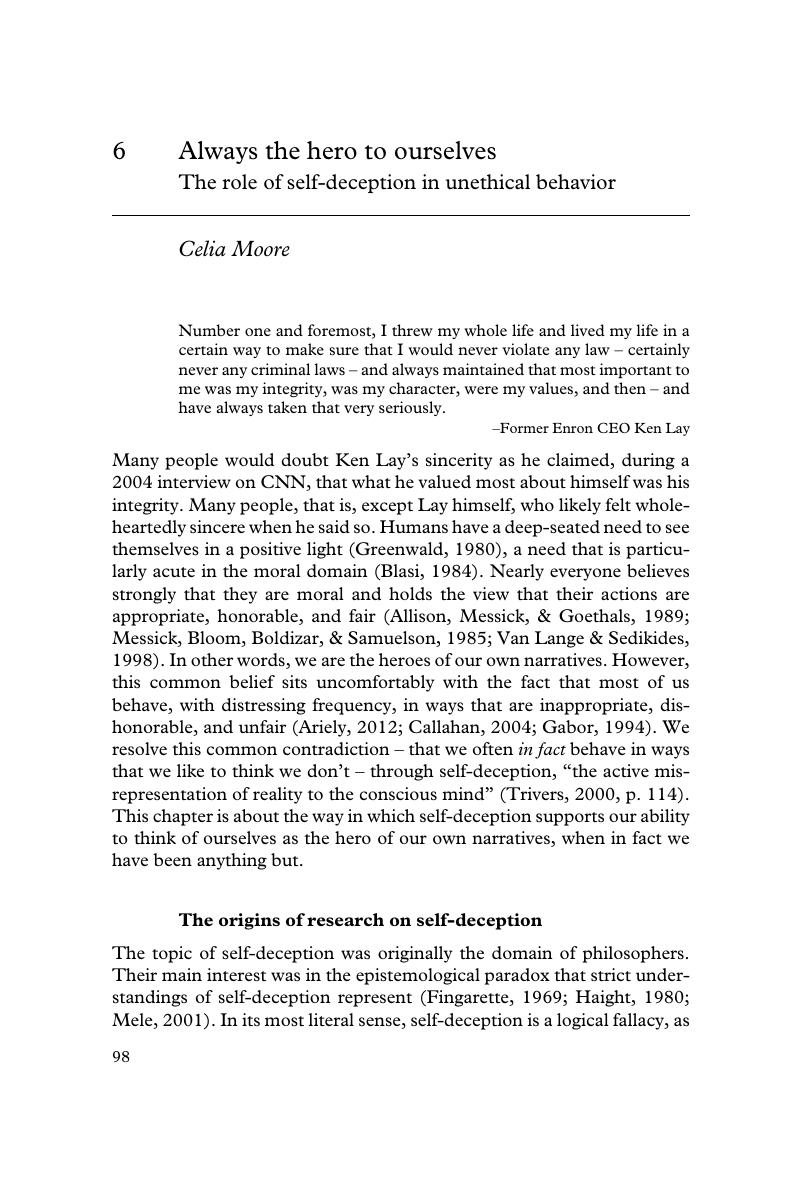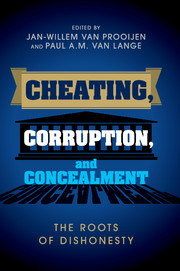Book contents
- Cheating, Corruption, and Concealment
- Cheating, Corruption, and Concealment
- Copyright page
- Contents
- Figures
- Tables
- Contributors
- Preface
- 1 Cheating, corruption, and concealment
- Part I Motivations for dishonesty
- Part II Justifying dishonesty
- 5 How moral flexibility constrains our moral compass
- 6 Always the hero to ourselves
- 7 Not for my sake
- 8 Corrupt collaboration
- Part III Influences on dishonesty
- Part IV Reducing dishonesty
- Book part
- Index
- References
6 - Always the hero to ourselves
The role of self-deception in unethical behavior
from Part II - Justifying dishonesty
Published online by Cambridge University Press: 05 June 2016
- Cheating, Corruption, and Concealment
- Cheating, Corruption, and Concealment
- Copyright page
- Contents
- Figures
- Tables
- Contributors
- Preface
- 1 Cheating, corruption, and concealment
- Part I Motivations for dishonesty
- Part II Justifying dishonesty
- 5 How moral flexibility constrains our moral compass
- 6 Always the hero to ourselves
- 7 Not for my sake
- 8 Corrupt collaboration
- Part III Influences on dishonesty
- Part IV Reducing dishonesty
- Book part
- Index
- References
Summary

- Type
- Chapter
- Information
- Cheating, Corruption, and ConcealmentThe Roots of Dishonesty, pp. 98 - 119Publisher: Cambridge University PressPrint publication year: 2016
References
- 7
- Cited by



